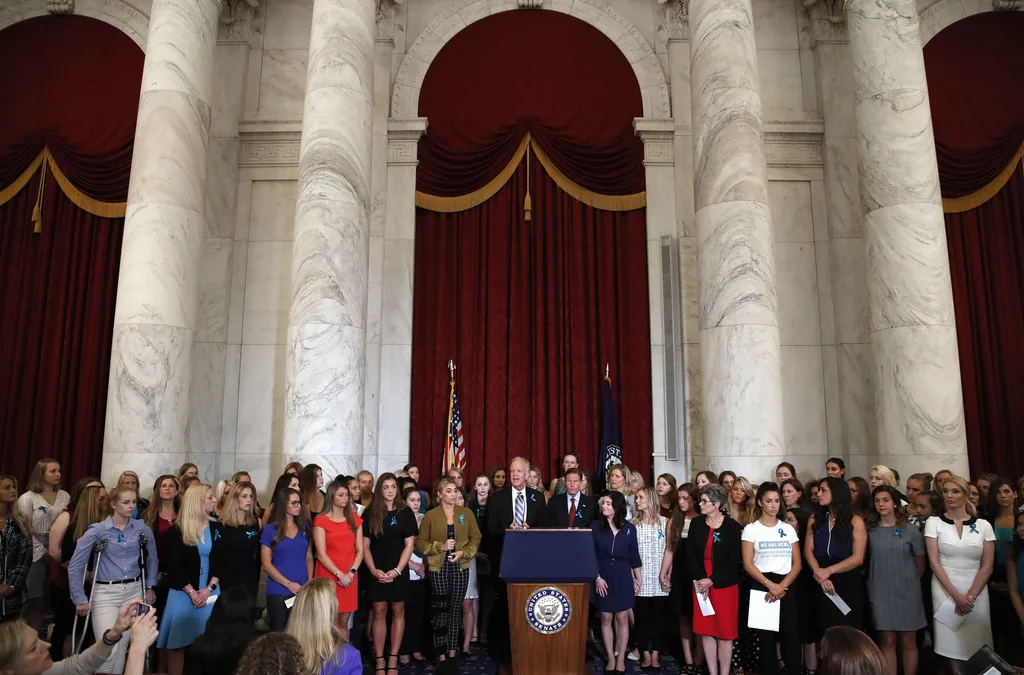BY ANNA GUSTAFSON, MICHIGAN ADVANCE
MICHIGAN—When the COVID-19 pandemic hit in 2020, struggling Michiganders who had lost jobs watched as their bank accounts dwindled.
As the world around them was engulfed by sickness and death, they saw their savings—often built over years—being depleted while they attempted to put food on their tables and pay their rent or mortgage on time. Finally, when there was close to nothing left, they turned to the Food Bank Council of Michigan.
There, they received assistance applying for benefits through the federal Supplemental Nutrition Assistance Program, or SNAP.
“It was months down the line, when they’d exhausted all the resources they’d had, that they came to us; they thought they weren’t eligible [for food assistance] because they had money in their bank account,” said Anna Almanza, the director of policy and SNAP outreach at the Food Bank Council of Michigan.
While many of those Michiganders would likely have been eligible to access food assistance when they had savings, the belief that they weren’t came after years of that largely being true.
From 2011 through 2019, people who had $5,000 or more in assets, which included bank account savings and cars, weren’t allowed to access food assistance through the federal SNAP program due to a policy implemented by Republican Gov. Rick Snyder’s administration.

Democratic Gov. Gretchen Whitmer and former Michigan Department of Health and Human Services Director Robert Gordon increased the asset limit for SNAP benefits from $5,000 to $15,000 in 2019—but the fallout from years of restrictive regulations around food assistance left many Michiganders unaware that they could have some savings and still access benefits.
That, Almanza explained, was especially disastrous during the early days of COVID-19, when people faced unexpected unemployment and were spending the last of their savings on things like rent and food for their families.
“To think they had to exhaust all they had in their bank account and only then could apply [for SNAP], that’s a tough situation,” Almanza said. “It can take quite a while to build up a little bit of savings. It can take years and years to build back.”
Now, more than a decade after Snyder originally instituted the $5,000 asset limit for SNAP recipients, state Sen. Jeff Irwin (D-Ann Arbor) this month introduced legislation, Senate Bill 35, that would remove the legal requirement for DHHS to apply an asset test to determine eligibility for food assistance.
Under federal law, DHHS is not permitted to eliminate the SNAP asset test; that must be done legislatively.

Irwin introduced similar legislation in 2021 and 2020, but the Republican-led Legislature never acted on the bills. With Democrats currently in control of the governorship, House and Senate for the first time in nearly 40 years, Irwin said he’s optimistic that the bill will become law and asset tests for food assistance will be a thing of the past.
“I was in the House when the asset test was passed; when it was passed, I thought it was a huge blunder,” Irwin said. “If you’re going to have a social safety net, it should catch people before they hit the ground.
“People are completely desperate and broken before you give them any assistance; I think that is cruel and inefficient and just wrong on so many levels,” Irwin continued.
Asset tests for food assistance were born in 1996, when federal lawmakers passed sweeping welfare reform legislation. Under that legislation, states were mandated to apply asset limits for food assistance, but it also permitted states to receive waivers and eliminate the tests.
Michigan has long been one of the most restrictive states in the country for people applying for public assistance benefits. Currently, 36 states have no asset test for food assistance under SNAP. Eliminating the asset test will not cost Michigan any money because the program is entirely federally funded, noted Peter Ruark, a senior policy analyst at the Michigan League for Public Policy.
DHHS spokesperson Bob Wheaton wrote in an email to the Advance that the “department is reviewing the legislation” and that it “supports improving access to public assistance benefits and will work with our legislative partners to accomplish this.”
Michigan’s history of implementing one of the strictest asset tests in the country—for a program entirely funded by federal dollars—was largely rooted in a Republican-led disinformation campaign against public assistance nationwide.
Irwin noted that the asset tests followed former Republican President Ronald Reagan’s attacks against public assistance programs and the ensuing racist, classist and sexist stereotype of the so-called “welfare queen.” The fallout from those attacks has persisted and tainted policy in Michigan, as well as nationwide, Irwin said.
“People are convinced there are poor people defrauding the system,” he said. “That was born out of a philosophy that was cemented in the minds of people back in the ‘80s.”
While Irwin’s legislation is mostly made up of Democratic sponsors, the lawmaker noted there are a couple Republicans who are backing it. So far, the Republicans who are listed as sponsors are Sens. John Damoose (R-Harbor Springs) and Joseph Bellino (R-Monroe).
Despite repeated claims by Republican leaders like Reagan and former President Donald Trump that low-income Americans have cheated the system, the truth is abuse of public assistance programs is rare.
A 2018 report from the Congressional Research Service found that for every $10,000 in benefits issued to households participating in SNAP, about $11 were determined by state agencies to have been overpaid due to recipient fraud.
As Republicans waged a war against public assistance—programs that two-thirds of Americans will use for at least one year during their lifetime—the number of Michiganders accessing food benefits dropped.
When Snyder implemented the $5,000 asset limit, there were about 1.9 million Michiganders receiving food assistance. Today, there are approximately 1.4 million, according to DHHS. That, lawmakers and policy experts said, doesn’t mean there is less food insecurity in the state but rather that the public has been deterred from accessing benefits.
According to Feeding America, the largest network of food banks in the country, one in nine Michiganders, or about 1.15 million people, are facing hunger. Of those, 297,150 are children.
These barriers to accessing food assistance are especially worrisome when there are extreme situations, such as the pandemic or a possible recession, because the number of people who need help affording food tends to increase during those times, policy experts said.
“Unemployment insurance is so inaccessible to so many workers that if a family’s main breadwinner has been laid off, food assistance is often the only public assistance program that they can access,” Ruark said. “Even if a family has more than $15,000 in their bank account, do we really want to tell them they need to spend that down before they can get food assistance? It’s the responsible thing to do to save money for emergencies or your children’s college; do we want to punish people for having saved money?”
A 2018 policy brief from the Washington, DC-based Center for Law and Social Policy found that asset limits “force families to deplete savings and sell assets to qualify for assistance,” which ends up exacerbating food insecurity rather than solving it. The report notes that “accumulating even a small amount of savings and assets may reduce the length of time families need public assistance.”
Typically, Ruark noted, families do not need to access food benefits for very long.
“It’s not an ongoing year after year after year situation,” he said. “It’s families falling on hard times that need the temporary relief through the SNAP program, and then they get on their feet and don’t need it anymore,” he said.
Irwin emphasized this point.
“You have families who hit a rough patch; they lose their income, and food assistance is one resource available to low-income people to make sure their kids get the nutrition they need,” he said. “When folks are denied food benefits, that is much more likely to push them over the edge into a longer term economic tragedy for them and their families.”
Both Ruark and Irwin said that food assistance benefits end up fueling local economies, as well.
“We never know when we’re going to have an economic downturn again, and as ready as we can be for a recession, the better,” Ruark said. “The more struggling families that can receive food assistance, the better it is for our economy. It’s used at local retailers, and when people aren’t able to buy food, that has a ripple effect in the economy. Grocery stores don’t do as well; their employees get their hours cut.
“There are sound economic reasons for making food assistance readily available to struggling families.”
This story was republished from Michigan Advance pursuant to a Creative Commons license.
Politics

VIDEO: How Michigan public schools survived the pandemic
https://www.tiktok.com/@gandernewsroom/video/7357799499571531050

What to know about Trump’s legal issues
Over the past year, former president Donald Trump has become the center of not one, not two, not three, but four criminal investigations, at both...

Michigan lawmakers look to break (another) state funding record for public schools
Democratic lawmakers are hashing out plans to bring state funding for Michigan’s public schools to another new, all-time high—and ensure teachers...
Local News

Lawyers for Nassar assault survivors have reached $100M deal with Justice Department, AP source says
The US Justice Department has agreed to pay approximately $100 million to settle claims with about 100 people who say they were sexually assaulted...

More Michigan teens could soon take driver’s ed in their own schools
Privatization of driver’s education means that only 38 Michigan high schools offer affordable in-school driving classes for students. New grants...





